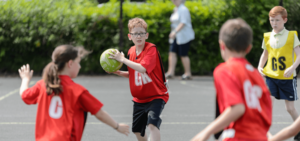It has certainly been a summer of up-and-downs in the sporting world this year. Whether it was the Euros, Wimbledon, the Tour de France, the Olympics or any other sporting event, young athletes from across the world have demonstrated the strength of character that many, sporting or not, should take on board.
 It’s hard enough for our young athletes and sports people to perform to their country’s high expectations, let alone the world’s expectations, but to do so in the spotlight and yet not lose sight of the fact that the way they behave speaks far more than their physical achievements is just inspirational. So, what essential lessons have our young athletes taught us this summer?
It’s hard enough for our young athletes and sports people to perform to their country’s high expectations, let alone the world’s expectations, but to do so in the spotlight and yet not lose sight of the fact that the way they behave speaks far more than their physical achievements is just inspirational. So, what essential lessons have our young athletes taught us this summer?
Look after your mental health
The mental health of our young people in the UK has never been more prevalent than it is now, significantly highlighted by the Covid-19 pandemic of the last 18 months. Seeing great athletes like Simone Biles and Naomi Osaka choose their personal health over the winning of medals and trophies has been truly inspirational. What makes their acts of bravery in standing up for themselves against the scrutiny of others is that they stood tall with the utmost dignity, earning the admiration and respect of many in their sport, and beyond.
What these brave, inspiring athletes also achieved was removing the societal stigma about mental health. No longer will athletes, sports people or anyone else cower behind closed doors. Biles and Osaka, and many others, have given them the courage to put their health first, physical and mental.
Sport is for all and not just the few
When Gareth Southgate announced that England players would ‘take the knee’ before all their Euro 2020 games, and that he backed them in doing so, there were flurries of indignation that rippled across the football world. The Euros displayed the gulf between the players as well as managers, and the football fans. But game after game, right through to the final at Wembley, Southgate and his players changed the tide and made the ‘glorious game’ accessible to all.
Dignity and honesty prevails over all
No-one can forget the devastating events of Christian Eriksen’s cardiac arrest during Denmark’s Euros 2020 game but what was far more evident was the quick action of his teammates in shielding Eriksen and protecting his dignity as the medics worked to save his life. Just because the media refused to respect this player in any way by moving the cameras away, his team’s spontaneous action was a lesson to be learnt by many.
Give back what you’ve received
Sporting fans returned this year, albeit in restricted numbers and when a young girl in the stands found herself in possession of Mason Mount’s England jersey after their semi-final win, not only did she squeal with delight, other spectators smiled, clapped and cheered… for the player who gave back what he had received.
But there’s one man that has stood out and campaigned endlessly to give back to his community, his fans, to children and families across the UK – Marcus Rashford. His quiet, totally unselfish but endlessly determined ambition to use his good-fortune for the good of others is why he persuaded the Government into 2 U-turns and has changed the lives of so many.
Solidarity – there is no room for ‘I’ in sport
Who could not be moved by Kye Whyte, who had just won the UK’s first ever silver medal in BMX racing, cheering Bethany Shriever, a fellow BMXer, all the way to the UK’s first ever gold medal in BMX racing. But that wasn’t all; when Shriever collapsed after winning with leg cramps, he lifted her high; he had her back.
Mutaz Essa Barshim from Qatar and Gianmarco Tamberi from Italy didn’t just embody the spirit of the Olympics; they made history when they shared gold in the high jump. Kalvin Phillips immediately went and consoled Bukayo Saka after his missed penalty in the Euros 2020 final – solidarity, fair play and friendship across all boundaries is more important than any medal or trophy.
Dedication and perseverance
Every one of our athletes and sports people put in hours and hours of training, defeating adversity time and time again, overcoming many, many challenges. However, our Paralympians truly stand out in overcoming disabilities to achieve so much. Then there’s Tom Daley who finally won his coveted gold medal in Tokyo after a lifetime of getting back up and trying again.
Pride and courage
Every medal winner, every trophy winner, every athlete, every sports person, whether they win or lose, shows immense pride and courage. As much as they do what they do for themselves, they are also representing their school, their community, their country. But it also gives them a platform to champion a cause and speak out for those that do not have that opportunity.
Resilience shines through
Resilience has been adopted as the word of 2021 by many and after a year and half of battling the Covid-19 pandemic. As the world starts to get back to some form of normality and the sporting agenda is once again filling up, no-one can deny that the organisers of the Euros 2020 and the Olympics Tokyo 2020 showed great depths of resilience in going ahead.
As a definition, resilience means ‘the capacity to recover quickly from difficulties; to display toughness’. An even better definition is to look at athletes like Simone Biles, Tom Daley, Sarah Storey, Lee Pearson and Christian Eriksen; all of them have shown overwhelming resilience and given people hope, faith and belief in possibilities.
Always show respect and gratitude
Manners, P&Qs and respecting others is vital to the healthy functioning of our society, inside and outside of sport. Whichever sport or sporting event you are taking part in, there’s always a group of people that have dedicated their time and put in masses of effort in organising it for you, often voluntarily. Show them respect and gratitude at every opportunity.
Above all, love what you do
There’s one person that epitomised the joy and jubilation of not only winning an historic bronze medal in Tokyo, but also the immense pleasure in taking part in her sport. It is, of course, 13-year-old skateboarder, Sky Brown. Her fearlessness, bravery, spirit and joy shone through, as did her enthusiasm for the sport and her support for her young rivals.
Great Athletes is a social enterprise that works with top athletes from around the UK and Ireland visiting primary schools to inspire and encourage kids of all abilities, and teachers, to be more active. Our mission is to Activate, Educate, Motivate and Innovate schools and parents through a series of events and workshops. If you’d like your school or parents to get active, get in touch with us and see how we could help you inspire our next generation.

 Sport England’s recent published figures have shown that although Covid-19 lockdowns and home schooling reduced the number of children and young people taking part in physical activity, it is by no means as much as many had feared. Their latest
Sport England’s recent published figures have shown that although Covid-19 lockdowns and home schooling reduced the number of children and young people taking part in physical activity, it is by no means as much as many had feared. Their latest 
